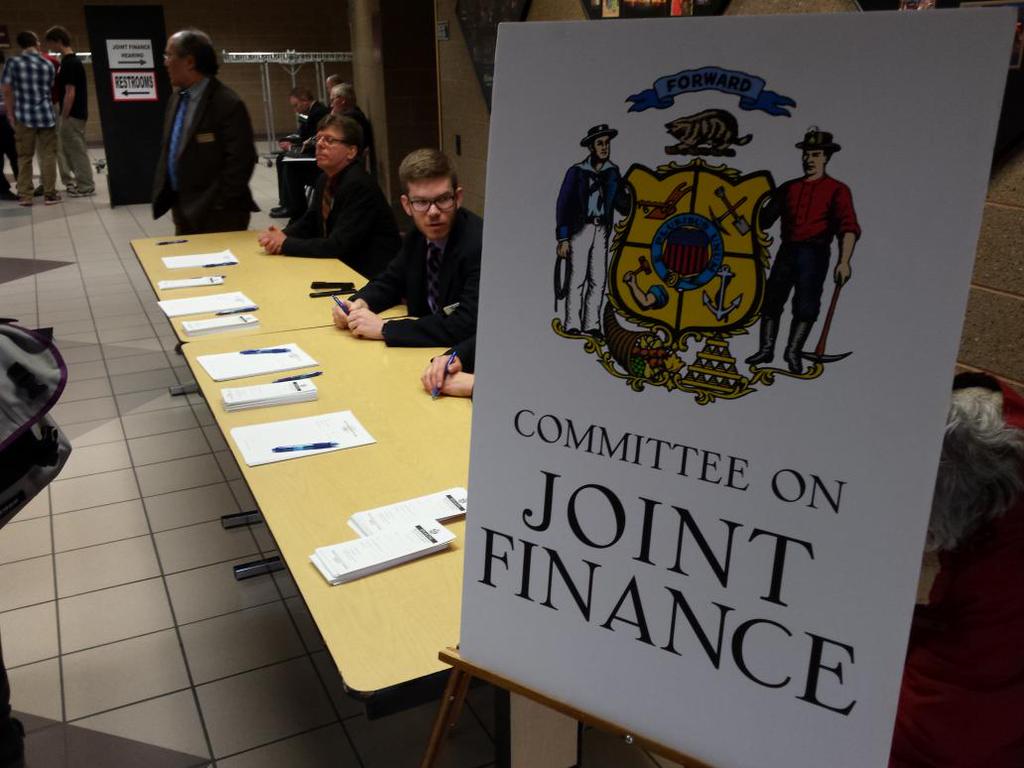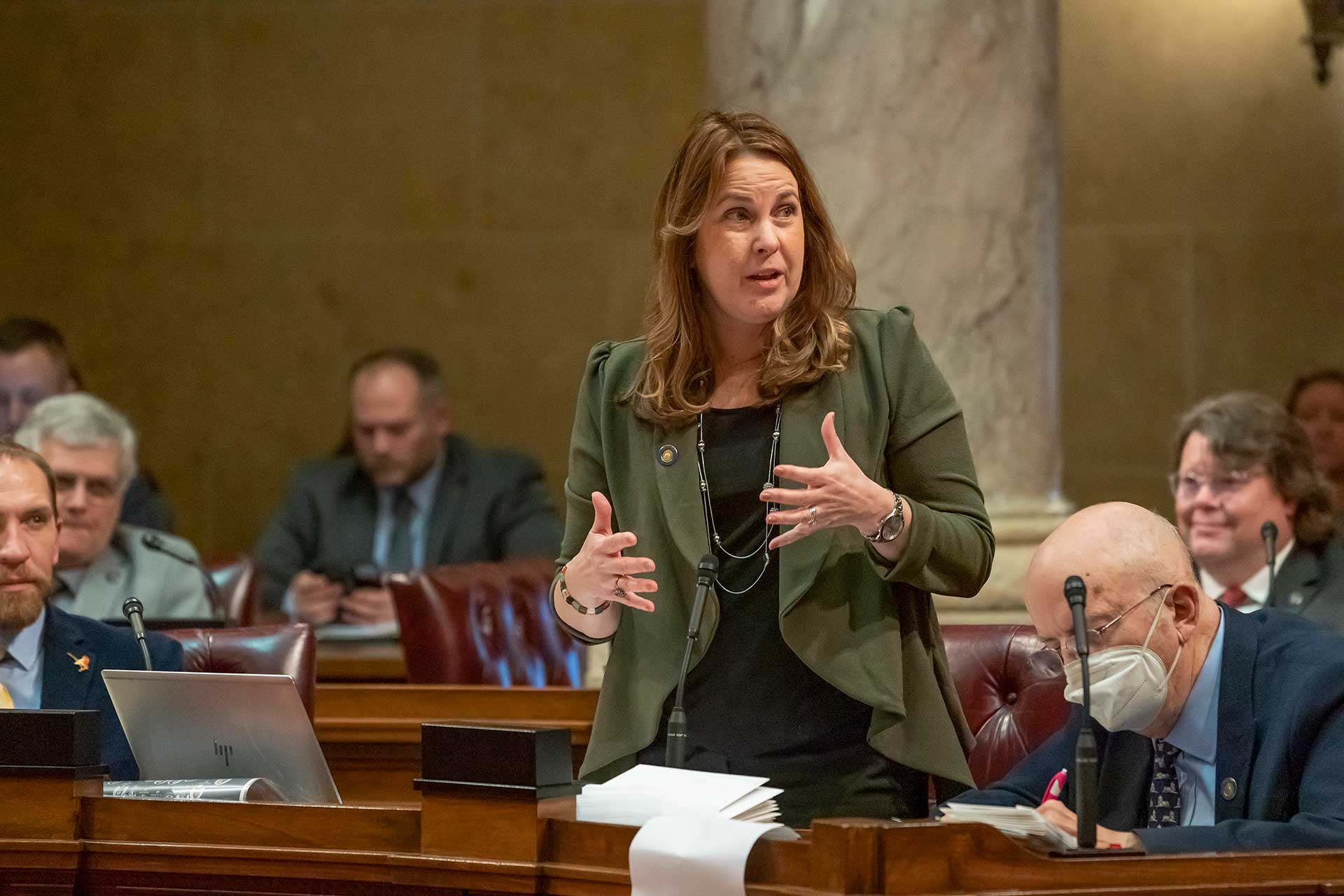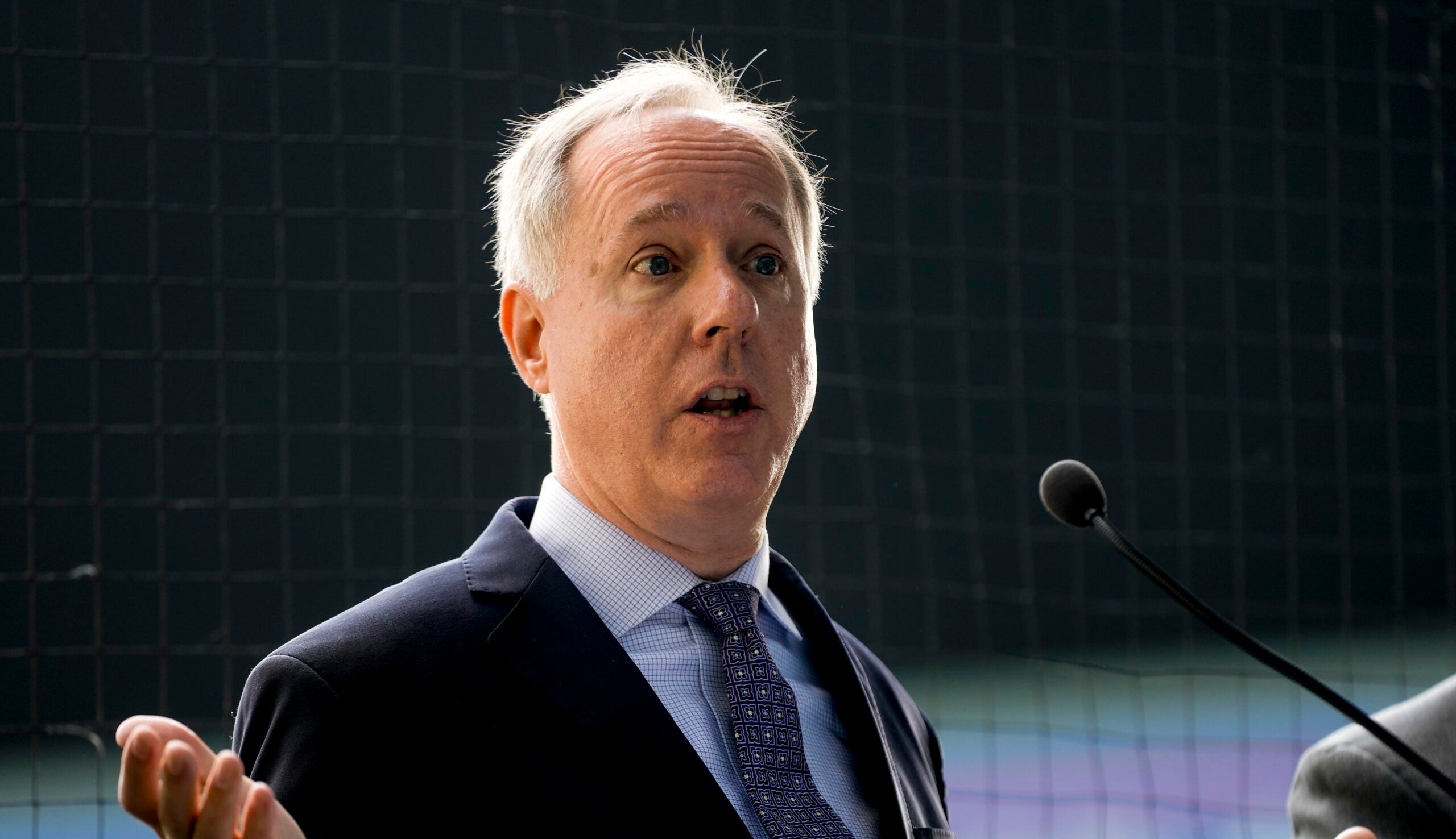Wisconsin Senate leaders have chosen eight lawmakers who will serve on the Legislature’s Joint Finance Committee — a simple bureaucratic move with major implications.
The 16-person committee, which meets in its very own conference room in the east wing of the state Capitol, reviews and controls how state government spends its money.
When budget season launches in early 2025, the finance committee will take the governor’s proposal and rework it, giving the panel considerable power when it comes to spending billions of dollars and dictating Wisconsin’s financial priorities for two years.
Stay informed on the latest news
Sign up for WPR’s email newsletter.
The majority party holds 12 seats and the minority party holds four. That means Republicans have run the committee since they took control of the Legislature in 2011.
On Wednesday, Senate Majority Leader Devin LeMahieu, R-Oostburg, announced his six picks for the committee, and Senate Minority Leader Dianne Hesselbein, D-Middleton, announced her two picks.
The other eight members will be appointed from the Assembly, where Republican Speaker Robin Vos, R-Rochester, and Democratic Minority Leader Greta Neubauer, D-Racine, have yet to announce their picks.
Among the Republican members of the committee are returning co-chair, Sen. Howard Marklein, R-Spring Green; Sen. Eric Wimberger, R-Green Bay; and Sen. Patrick Testin, R-Stevens Point.
Sen. Romaine Quinn, R-Cameron; Sen. Julian Bradley, R-New Berlin; and Sen. Rob Stafsholt, R-New Richmond, will be serving on the powerful group for the first time.
“I’m confident the new Senate finance team will responsibly utilize our state’s $4 billion surplus to shrink the size of government and reduce the tax burden on hardworking Wisconsin families,” LeMahieu said in a statement.
For Democrats, Sen. LaTonya Johnson, D-Milwaukee, and Sen. Kelda Roys, D-Madison, were both reappointed.
“Senator Johnson and Senator Roys are effective and passionate advocates for the priorities of Wisconsinites and will continue to serve our caucus and state well during the budget process and beyond,” Hesselbein said in a statement announcing the picks.
Meetings of the Joint Finance Committee often last long into the night, and are marked by contentious partisan bickering. Many votes are decided on pure party lines. The big decisions get made by the majority party in private, with the public meeting devoted to speeches and votes.
That’s in part a reflection of the two parties’ different priorities. Republicans, under the leadership of Speaker Vos, have said that tax cuts and lowering spending are a key part of their agenda, while Democrats have called for spending the state’s surplus on priorities like schools and child care.
In 2023, for example, Gov. Tony Evers’ original budget proposal would have spent about $104 billion from all sources, including federal funds. When the Joint Finance Committee met to begin crafting what would eventually become the state budget, Republicans immediately cut hundreds of proposals out of the gate that would have spent surplus money. The final budget that Evers signed that year supported major Republican legislative priorities, like expanding school vouchers.
On Tuesday, Evers requested to present his budget proposal — which will be one of his largest public addresses for the year — on either Feb. 25 or March 4 of next year. Republican leadership will have to approve his request. That will kick off several months of discussion in the budget committee’s conference room to decide what Wisconsin will invest in through 2027.
Wisconsin Public Radio, © Copyright 2025, Board of Regents of the University of Wisconsin System and Wisconsin Educational Communications Board.



